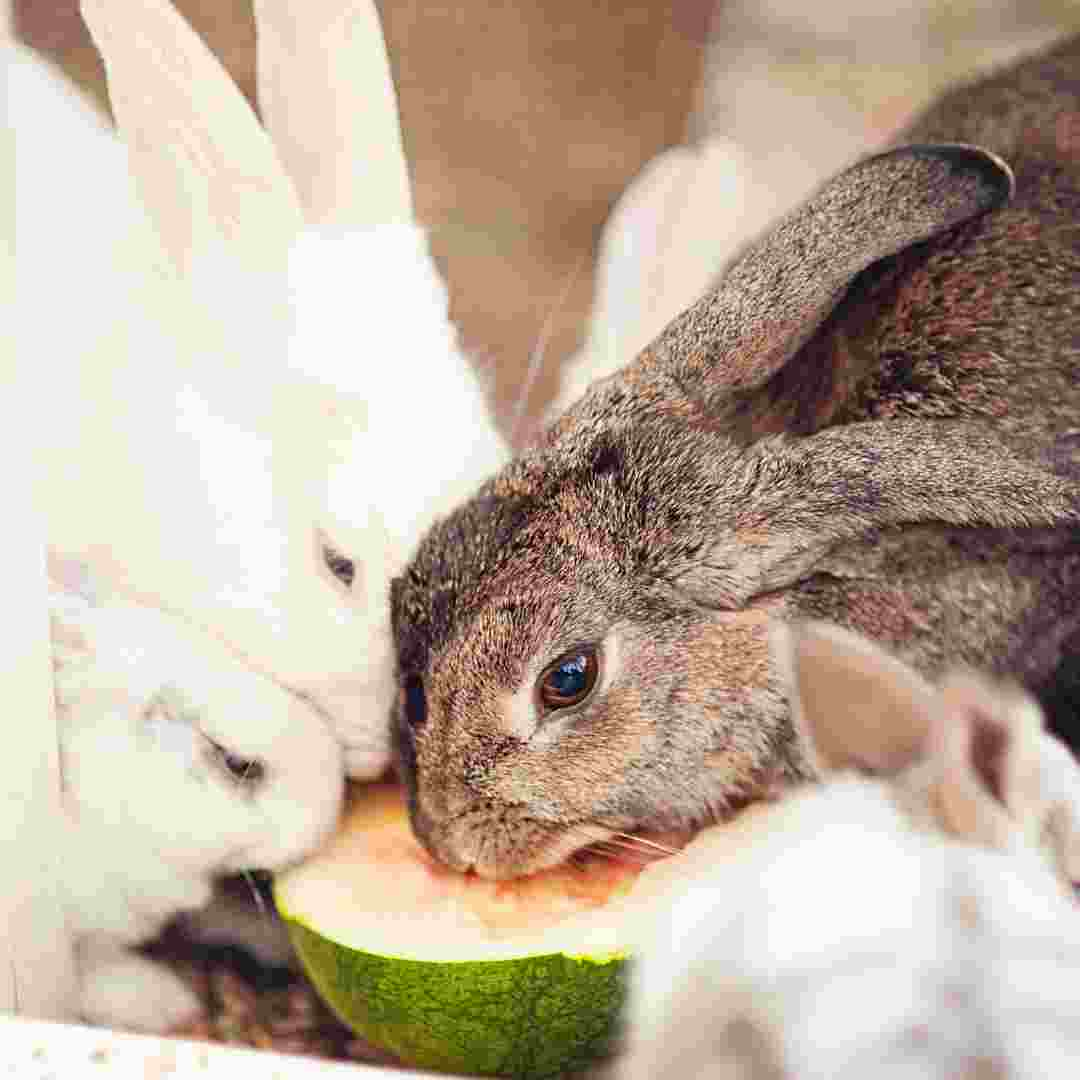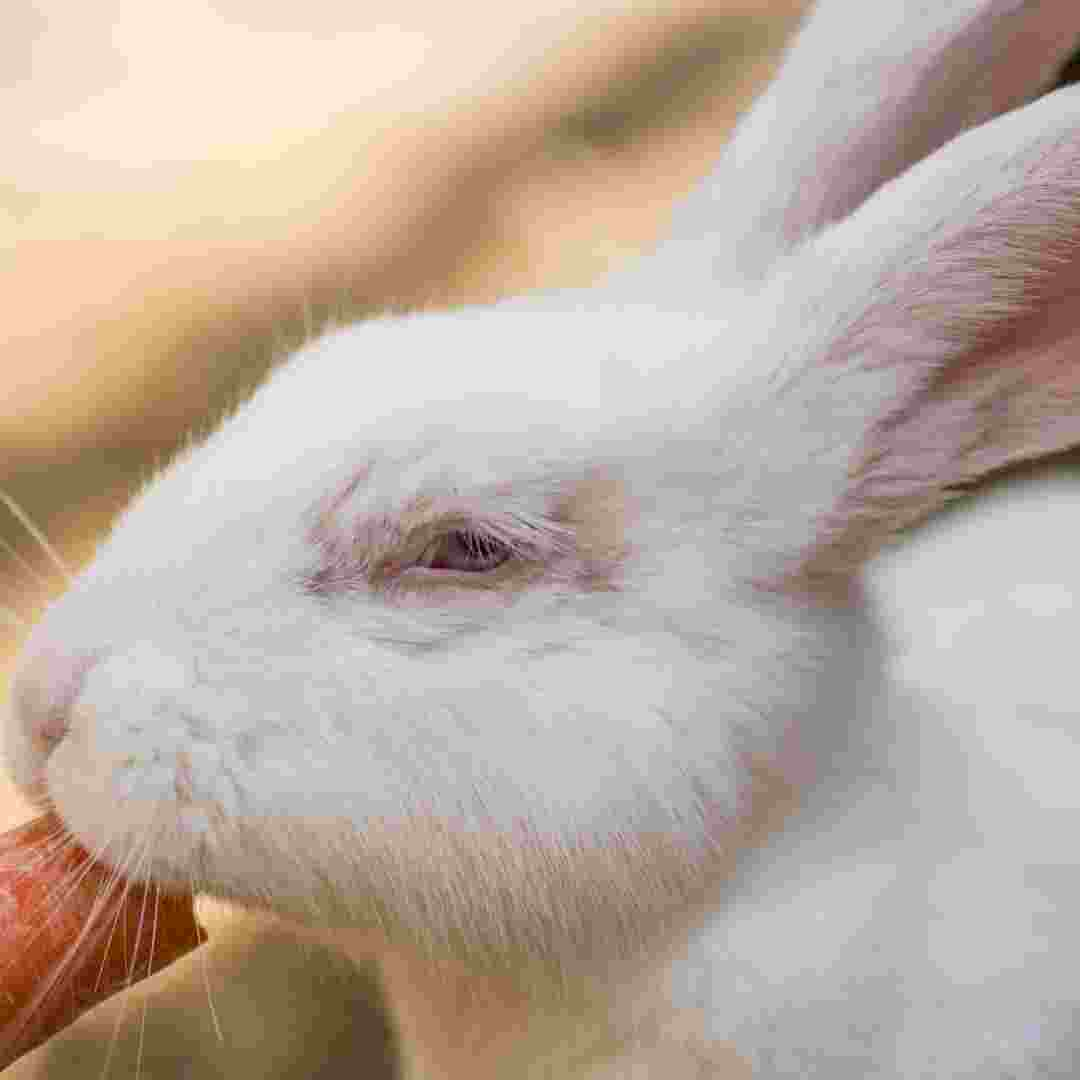Contents Table
Introduction
How much rabbit food should I feed my pet?
What are the benefits of feeding my rabbit a balanced diet?
What Kinds of Rabbit Food Exist?
Does My Rabbit Get Enough Nutrition From Its Food?
How Should Rabbit Food Be Stored to Stay Fresh?
Q&A
Conclusion
Introduction
Rabbit food is essential but expensive for rabbit owners. To keep healthy and happy, rabbits require hay, pellets, and fresh veggies. Rabbit food prices vary by type and amount. Understanding rabbit nutrition and the expense of a balanced diet is crucial. This article covers rabbit food prices and types.
How much rabbit food should I feed my pet?
To keep your rabbit healthy, provide it a balanced diet. Rabbit food should be hay, fresh veggies, and some pellets.
Hay should be your rabbit's main food and always available. Timothy hay is preferable since it has high fibre and low protein and calcium. Aim to feed 1-2 cups of hay per 2 pounds of body weight daily.
Feeding your rabbit fresh veggies is the second most important part. Include carrots, bell peppers, and dark leafy greens. Aim for 1 cup of vegetables per 2 pounds of body weight every day.
Finally, offer a few pellets. Rabbit pellets should not exceed 10% of their diet. Aim for 1/8 cup of pellets for 2 pounds of body weight every day.
Overall, your rabbit should eat hay, fresh veggies, and a few pellets. Aim to feed 1-2 cups of hay, 1 cup of vegetables, and 1/8 cup of pellets for 2 pounds of body weight every day.
What are the benefits of feeding my rabbit a balanced diet?
Rabbits need a balanced diet like any other animal. Feeding your rabbit a balanced diet will improve digestion, coat condition, and energy.
First, a balanced food aids your rabbit's digestion. A diet high in fibre and low in sugar and fat helps the digestive system work smoothly and prevents diarrhoea and bloating. A balanced diet stimulates rabbits to chew and grind their food, which keeps their teeth healthy.
Second, a balanced diet maintains your rabbit's coat. A diet high in fibre and low in sugar and fat keeps the coat glossy and healthy. A balanced diet also keeps rabbit skin healthy and itch-free.
Finally, a healthy diet boosts rabbit energy. A diet high in fibre and low in sugar and fat keeps rabbits active and healthy.
In conclusion, feeding your rabbit a balanced diet helps improve digestion, coat condition, and energy. Rabbits need a balanced diet like any other animal.
What Kinds of Rabbit Food Exist?
Herbivores like rabbits eat plants. There are many rabbit food options to fulfil your pet's nutritional demands.
The most frequent rabbit food is hay. Hay should be a rabbit's main food. Their digestive system benefits from its high fibre content. Timothy, oat, and meadow hay are good.
Rabbits need fresh vegetables too. Kale, spinach, and romaine lettuce are beneficial. Carrots, celery, and bell peppers are also options.
Treats can include fruits. Apples, bananas, and strawberries work. Due to their sugar content, fruits should be served sparingly.
Pellets are rabbit food too. Pellets provide concentrated nourishment and should be eaten sparingly by rabbits. Rabbit-specific pellets are essential.
Finally, rabbit snacks abound. These sweets should be limited and not a major part of their diet. Dried herbs, fruits, and nuts are nice.
Finally, there are many rabbit food selections to fulfil your pet's nutritional demands. Hay should dominate their diet, with limited amounts of fresh vegetables, fruits, pellets, and treats.
Does My Rabbit Get Enough Nutrition From Its Food?
Your rabbit needs proper nourishment from its food. To check if your rabbit is getting adequate nutrients, look for these signs.
Check your rabbit's look. A healthy rabbit has a glossy coat, sparkling eyes, and overall health. Having a thin or drab coat may indicate malnutrition in your rabbit.
Second, watch your rabbit's diet. Healthy rabbits eat everything and have a good appetite. A rabbit that leaves food in its bowl or has a decreased appetite may not be getting adequate nourishment.
Finally, think about rabbit food. Hay, fresh veggies, plus a few pellets make a healthy meal. Pellets may not provide enough nourishment for your rabbit.
You can make sure your rabbit is getting enough nutrients by watching its diet, appearance, and eating habits.
How Should Rabbit Food Be Stored to Stay Fresh?
Rabbit food must be stored properly to stay fresh and healthy. The greatest rabbit food storage methods:
1. Keep rabbit food in an airtight container: This is one of the finest ways to keep it fresh. Protects against dampness, bugs, and other pollutants.
2. Store rabbit food in a cool, dry spot out of direct sunlight. This prevents food spoilage and mould.
3. Refrigerate or freeze: Store big amounts of rabbit chow in the fridge or freezer. This prolongs its freshness.
4. Vacuum seal rabbit food to keep it fresh. Protects against dampness, bugs, and other pollutants.
Following these methods will keep your rabbit food fresh and nutritious.

Q&A
1. How much is rabbit food?
Rabbit food prices vary by type and brand. High-quality rabbit food costs $10–$20 each 10-pound bag.
2. What should my rabbit eat?
Diets should be high in fibre and low in fat and sugar for rabbits. Rabbits should eat hay, fresh vegetables, and a few pellets.
3. How often should I feed my rabbit?
Rabbits need morning and evening meals.
4. How much should I feed my rabbit?
Aim to feed your rabbit 1/4 cup of pellets for 5 pounds of body weight daily.
5. What rewards can I give my rabbit?
Treat your rabbit to fresh produce, fruits, and herbs. Avoid offering your rabbit sugary or fatty snacks.
Conclusion
It's crucial to feed your rabbit enough food for their size and age. Hay, fresh vegetables, and a few pellets should be high-fiber, low-fat rabbit chow. To evaluate your rabbit's diet, see a veterinarian. Size and activity level influence how much food they need.
